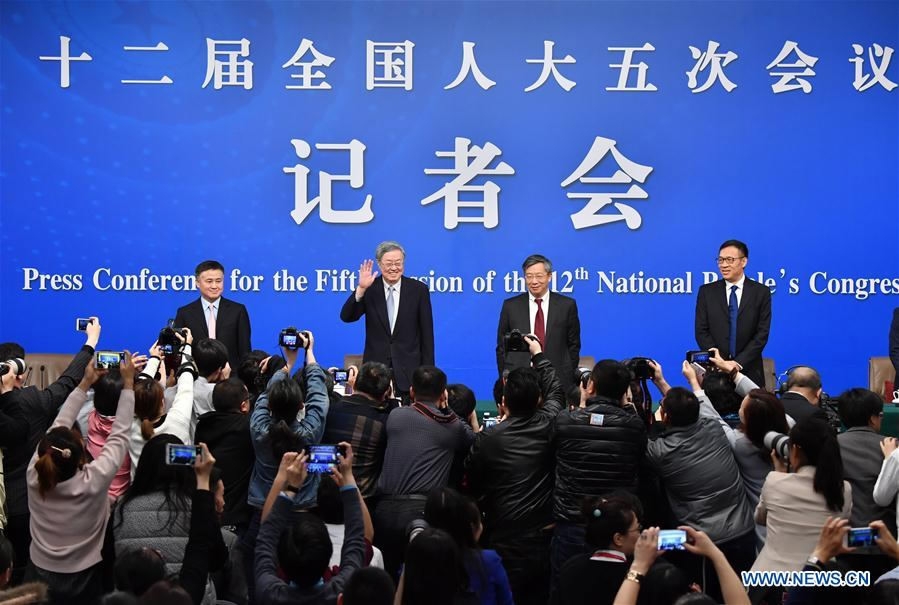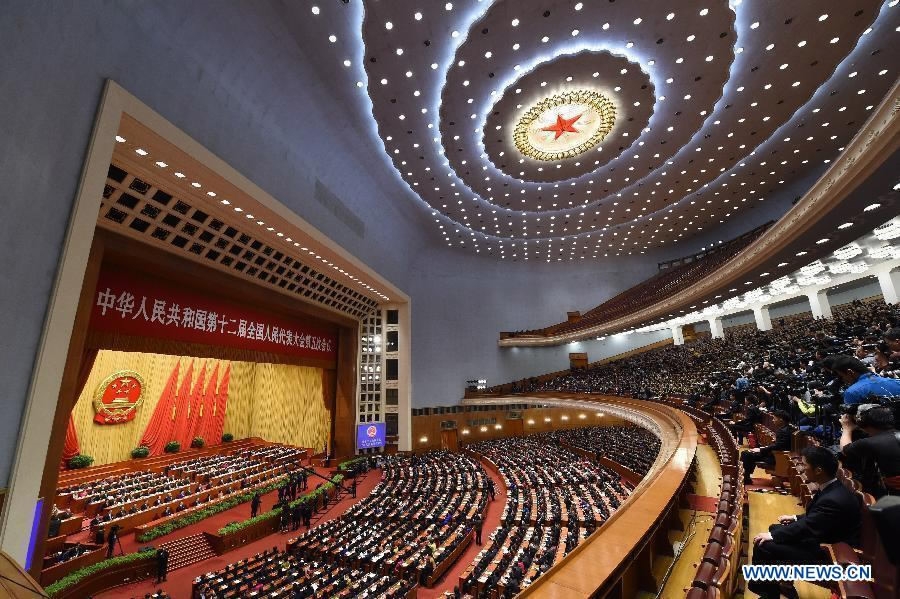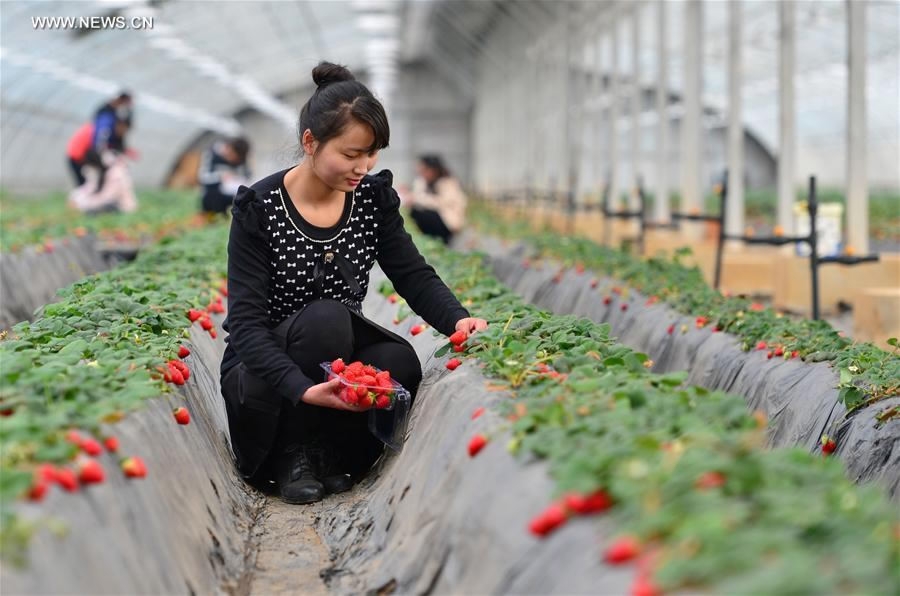Guest commentary by Andy Mok
At the People’s Bank of China (PBOC) press conference last Friday, Governor Zhou Xiaochuan and his colleagues shared their views on a broad range of topics covering exchange rates, foreign reserves, capital controls, market perceptions and misperceptions, fintech and inclusive finance.
Here are nine key takeaways from the press conference and a quick discussion of three key words in 2017 affecting technology and startup investors and entrepreneurs.

Zhou Xiaochuan, governor of the People's Bank of China (PBOC), Yi Gang, deputy governor of the PBOC, Pan Gongsheng, deputy governor of the PBOC and director of the State Administration of Foreign Exchange, and Fan Yifei, deputy governor of the PBOC, greet journalists at a press conference during the NPC's annual session in Beijing on March 10, 2017. /Xinhua Photo
1. The yuan will remain stable because of the improved outlook for the Chinese economy, progress on structural reform and greater investor confidence.
2. Wealth management businesses need better regulatory enforcement to ensure financial products serve the real economy.
3. Opening of the bond market will continue on a gradual basis though without any specific milestones in mind.
4. The PBOC’s “toolkit” (the ways it can manage the economy) is broad and increasingly sophisticated. However, any specific application of these tools shouldn’t be over-interpreted.

The closing meeting of the NPC annual session is held in the Great Hall of the People in Beijing on March 15, 2017. /Xinhua Photo
5. Corporate leverage (the ratio of debt to equity) is too high and needs to be addressed. But household and government leverage is not too high. In fact, the PBOC would encourage homes taking on a bit more debt, at least at a moderate pace.
6. Fintech (financial technology) is to be supported, especially virtual currencies.
7. Third party payment services (often used to make online payments) have too much risk exposure due to excessive competition.
8. Inclusive finance is another area the PBOC wants to support through credit policy incentives. Inclusive finance covers a broad range of banking products and financial services made available to lower income communities.
9. Declines in foreign reserves are not a cause for concern because they exist to serve a purpose and should be used. They are not solely, or even primarily, a symbol of economic vitality.
Not surprisingly, areas of particular interest for those in the startup and technology worlds involve virtual currency, third party payment systems and inclusive finance. But the expected growth in home credit also has important implications for startups relying on consumer demand and investors that back the startups. Also, the continued opening up of China’s bond market provides a compelling set of both traditional and fintech business opportunities.
While the PBOC primarily engages in policy-level oversight and macro-level control, regarding virtual currency, it is especially important to understand its stance and particular policy decisions involving topics such as monetary and exchange rate policies, tax, consumer protection and opposition to money laundering. Also, its role in the determination of cyber security issues is vital.

A tourist picks strawberries in a greenhouse at an ecofarm in Shahe, north China's Hebei Province, on Feb. 19, 2017. In Shahe, 54 ecofarms have been established to boost the economy in villages. /Xinhua Photo
Moreover, virtual currencies, third party payment systems and wealth management products all have important potential and actual linkages with each other that impact on existing policies and regulations.
With the scale of China’s market and financial assets and the speed with which business is undertaken online, both market participants and policy makers should examine these intersections for opportunities and risks.
For example, there are now a number of crowdfunding and online lending apps that allow middle-class Chinese investors to pool their money to buy property overseas. While the ceiling of 50,000 US dollars per year on how much an individual Chinese person can take out of the country may appear to be a meaningful constraint, 10 million Chinese investors equals 500 billion US dollars in outbound investment. Given the middle class in China now exceeds 400 million, small changes in their financial behavior can have real consequences.
Their actions can have a meaningful macro-level impact and the speed at which their behavior changes, such as taking up online transactions, means that more PBOC attention and resources will be devoted to areas such as this.
Finally, “inclusive finance” will target not only the poor and people who don’t have bank accounts (or hardly use the banking system) in China but will also impact on the poor across the world. As initiatives such as the Belt and Road gain further momentum, China will take a much larger role in bringing the rest of the world's unbanked into the digital era. Startups ready and able to develop “multi-local” inclusive finance products and services will have a powerful PBOC wind behind them.
(Andy Mok is managing director of Red Pagoda Resources, which invests in and provides professional services to startups in China. The article reflects the author’s opinion, not necessarily the view of CGTN.)









